第11章 "INDEPNDENCE OR DEATH"(4)
A junction of the forces of the two great leaders was perfectly feasible, after the last important foothold of the Spaniards on the coast of Venezuela had been broken by the Battle of Carabobo, on July 24, 1821. Whether such a union would be made, however, depended upon two things: the ultimate disposition of the province of Quito, lying between Colombia and Peru, and the attitude which Bolivar and San Martin themselves should assume toward each other. A revolution of the previous year at the seaport town of Guayaquil in that province had installed an independent government which besought the Liberator to sustain its existence. Prompt to avail himself of so auspicious an opportunity of uniting this former division of the viceroyalty of New Granada to his republic of Colombia, Bolivar appointed Antonio Jose de Sucre, his ablest lieutenant and probably the most efficient of all Spanish American soldiers of the time, to assume charge of the campaign. On his arrival at Guayaquil, this officer found the inhabitants at odds among themselves. Some, hearkening to the pleas of an agent of San Martin, favored union with Peru; others, yielding to the arguments of a representative of Bolivar, urged annexation to Colombia; still others regarded absolute independence as most desirable. Under these circumstances Sucre for a while made little headway against the royalists concentrated in the mountainous parts of the country despite the partial support he received from troops which were sent by the southern commander. At length, on May 24, 1822, scaling the flanks of the volcano of Pichincha, near the capital town of Quito itself, he delivered the blow for freedom. Here Bolivar, who had fought his way overland amid tremendous difficulties, joined him and started for Guayaquil, where he and San Martin were to hold their memorable interview.
No characters in Spanish American history have called forth so much controversy about their respective merits and demerits as these two heroes of independence--Bolivar and San Martin. Even now it seems quite impossible to obtain from the admirers of either an opinion that does full justice to both; and foreigners who venture to pass judgment are almost certain to provoke criticism from one set of partisans or the other. Both Bolivar and San Martin were sons of country gentlemen, aristocratic by lineage and devoted to the cause of independence. Bolivar was alert, dauntless, brilliant, impetuous, vehemently patriotic, and yet often capricious, domineering, vain, ostentatious, and disdainful of moral considerations--a masterful man, fertile in intellect, fluent in speech and with pen, an inspiring leader and one born to command in state and army. Quite as earnest, equally courageous, and upholding in private life a higher standard of morals, San Martin was relatively calm, cautious, almost taciturn in manner, and slower in thought and action. He was primarily a soldier, fitted to organize and conduct expeditions, rather than, a man endowed with that supreme confidence in himself which brings enthusiasm, affection, and loyalty in its train.
When San Martin arrived at Guayaquil, late in July, 1822, his hope of annexing the province of Quito to Peru was rudely shattered by the news that Bolivar had already declared it a part of Colombia. Though it was outwardly cordial and even effusive, the meeting of the two men held out no prospect of accord. In an interchange of views which lasted but a few hours, mutual suspicion, jealousy, and resentment prevented their reaching an effective understanding. The Protector, it would seem, thought the Liberator actuated by a boundless ambition that would not endure resistance. Bolivar fancied San Martin a crafty schemer plotting for his own advancement. They failed to agree on the three fundamental points essential to their further cooperation.
Bolivar declined to give up the province of Quito. He refused also to send an army into Peru unless he could command it in person, and then he declined to undertake the expedition on the ground that as President of Colombia he ought not to leave the territory of the republic. Divining this pretext, San Martin offered to serve under his orders--a feint that Bolivar parried by protesting that he would not hear of any such self-denial on the part of a brother officer.
Above all, the two men differed about the political form to be adopted for the new independent states. Both of them realized that anything like genuine democracies was quite impossible of attainment for many years to come, and that strong administrations would be needful to tide the Spanish Americans over from the political inexperience of colonial days and the disorders of revolution to intelligent self-government, which could come only after a practical acquaintance with public concerns on a large scale. San Martin believed that a limited monarchy was the best form of government under the circumstances.
Bolivar held fast to the idea of a centralized or unitary republic, in which actual power should be exercised by a life president and an hereditary senate until the people, represented in a lower house, should have gained a sufficient amount of political experience.